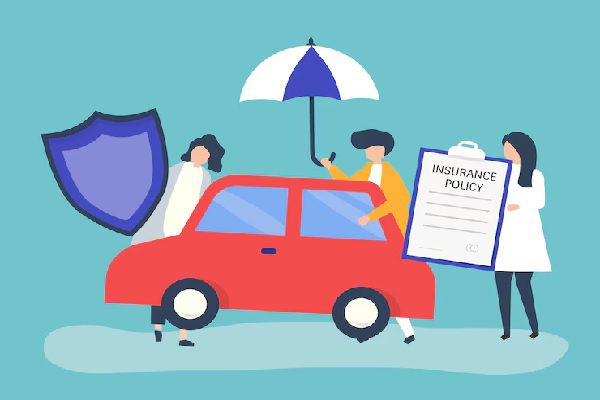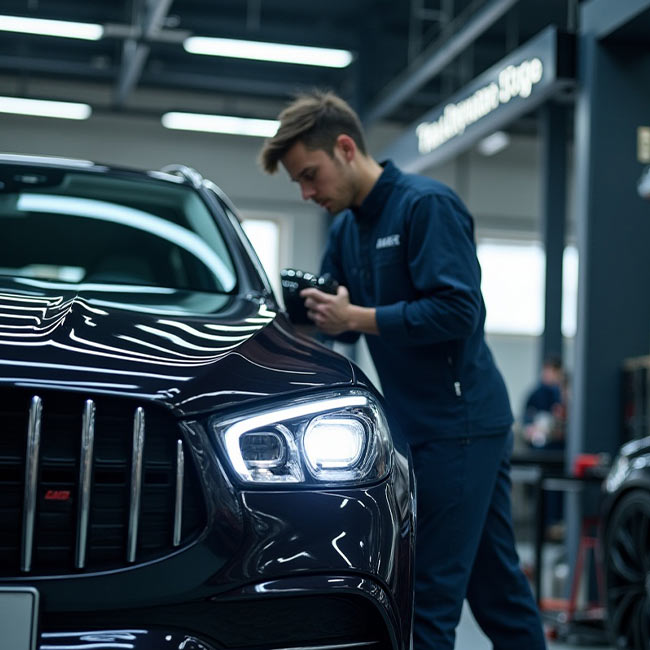When you buy a used car, you are not just getting a vehicle; you are also taking on its history. This history, particularly its current market value, plays a major role in determining your car insurance premium. While it might seem like a simple detail, the accurate valuation of a used car is a crucial part of the insurance process. It directly influences your premium, the claim amount you receive, and your overall financial protection.
The Core Concept: Insured Declared Value (IDV)
The IDV is the maximum amount your insurer will pay you in case your car is stolen or damaged beyond repair (total loss). It represents the current market value of your vehicle. For a used car, the IDV is calculated by taking the manufacturer’s selling price and deducting the rate of depreciation.
The Insurance Regulatory and Development Authority of India (IRDAI) sets standard depreciation rates based on the car’s age. For example, a car that is two years old will have its value depreciated by 20%. For cars older than five years, the IDV is mutually agreed upon by the insurer and the policyholder based on the vehicle’s condition.
The relationship between your car’s valuation and your insurance premium is simple: the higher the IDV, the higher your premium. This is because a higher IDV means the insurance company is taking on a greater risk, as they would have to pay a larger amount in case of a total loss.
The Direct Impact on Your Premium
Choosing the correct IDV is a delicate balance. It directly affects the cost of your insurance.
-
Higher IDV, Higher Premium:
If you set a high IDV, your premium will increase. This might seem like a disadvantage, but it ensures you receive a fair claim amount that is closer to your car’s actual value. In case of a total loss, you will not have to suffer a major financial setback.
-
Lower IDV, Lower Premium:
Some people try to lower their premium by declaring a lower IDV. While this saves you money on the premium, it can be a costly mistake. In case of a total loss or theft, you would receive a much lower payout, leaving you with a significant loss. A lower IDV essentially means you are under-insuring your car.
Other Factors to Evaluate
While depreciation is crucial, other elements also influence a used car’s valuation and your premium:
- Mileage and Condition: A car with lower mileage and a good service history is valued more highly than one with high mileage and a poor maintenance record. Insurers consider the wear and tear of a vehicle when setting its IDV.
- Accident History: A car that has been in major accidents will have a lower valuation. This is because it is considered a higher risk for future damages.
- Modifications and Accessories: Any custom modifications or added accessories can increase the car’s value. You need to declare these to your insurer so they can be included in your IDV.
- Market Demand: The popularity and market demand for a particular model also affect its valuation. A highly sought-after model will depreciate more slowly, holding a higher value.
- The Type of Policy: While third-party car insurance is mandatory and its premium is fixed based on the engine size, a comprehensive policy’s premium is directly linked to the car’s valuation.
Which Policy Can Offer Better Protection?
Many used car owners only opt for a third-party car insurance policy to save money. While it meets the legal requirement and covers any damage you cause to a third party, if your car is damaged in an accident or stolen, you will not receive any compensation.
The cost of a third-party car insurance policy is not affected by the car’s valuation because it doesn’t cover own-damage. For complete peace of mind, a comprehensive policy is always the better option, and its premium is directly tied to the car’s valuation.
How Online Platforms Simplify Valuation
Today, online platforms have made it simple and transparent to choose a suitable insurance plan. Financial marketplaces like Bajaj Markets offer tools that help you determine a fair IDV for your used car. By entering details like the car’s make, model, variant, and registration year, you can get an estimated valuation and see how different IDVs affect your premium.
These platforms allow you to compare various insurance policies and add-on covers from different insurers. You can choose a plan that offers the right balance between premium and coverage.
Conclusion
Used car valuation is a key detail in the insurance process. It is a fundamental factor that influences your premium and your financial safety. While it is tempting to lower your premium by undervaluing your car, it is a risk that can lead to significant losses. By understanding concepts like IDV and depreciation, and by using online tools to get an accurate valuation, you can make an intelligent choice.










